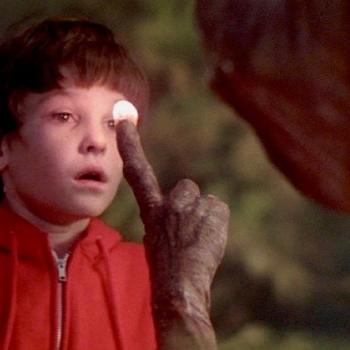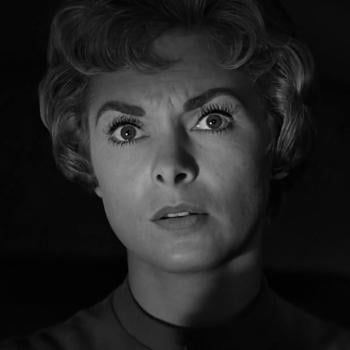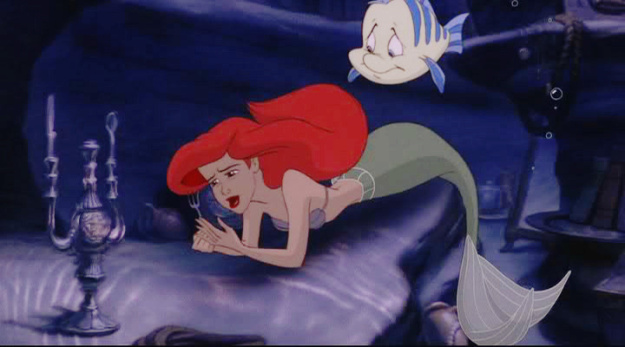
I don’t know about any of you, but growing up I often heard my local church leaders going on about the sinfulness of Disney’s 1989 film, The Little Mermaid. I mean going on and on about that movie, especially that whiney Ariel girl. Maybe you’re familiar with a lot of these talking points: Ariel teaches little girls that they should disobey their parents, or that a little deal with the devil never hurt anybody. And what’s she doing dressed like a harlot anyway?
It’s with much love to all those Sunday School teachers that I present a counterpoint. As a believer, and as a Disney enthusiast, I’m here to try balancing the dialogue. Here it is: A religious reading of Disney’s The Little Mermaid that’s actually sympathetic to the girl who heals the hate between two nations with her belief in goodness.
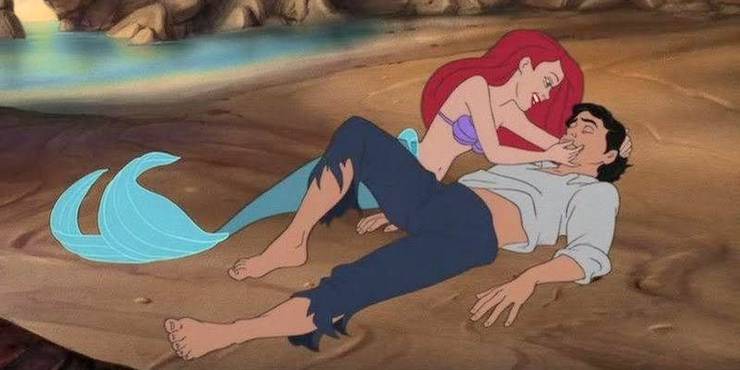
People tend to forget that for such a spoiled, selfish little brat, Ariel spends a lot of her movie risking her life to help others, most notably Prince Eric. Her first notable action within the film, the thing that sets the plot in motion, is playing the good samaritan and saving the life of someone she’s never met, someone her society has trained her to scorn. There’s something very much like virtue at work with Ariel’s actions. Or maybe it’s just virtue.
Moreover, at the root of Ariel’s fascination with the above is a belief in goodness. “I just don’t see how a world that makes such wonderful things could be bad.” There’s a brand of faith at work that feels very much in line with Matthew 18:3 and the biblical description of childlike faith.
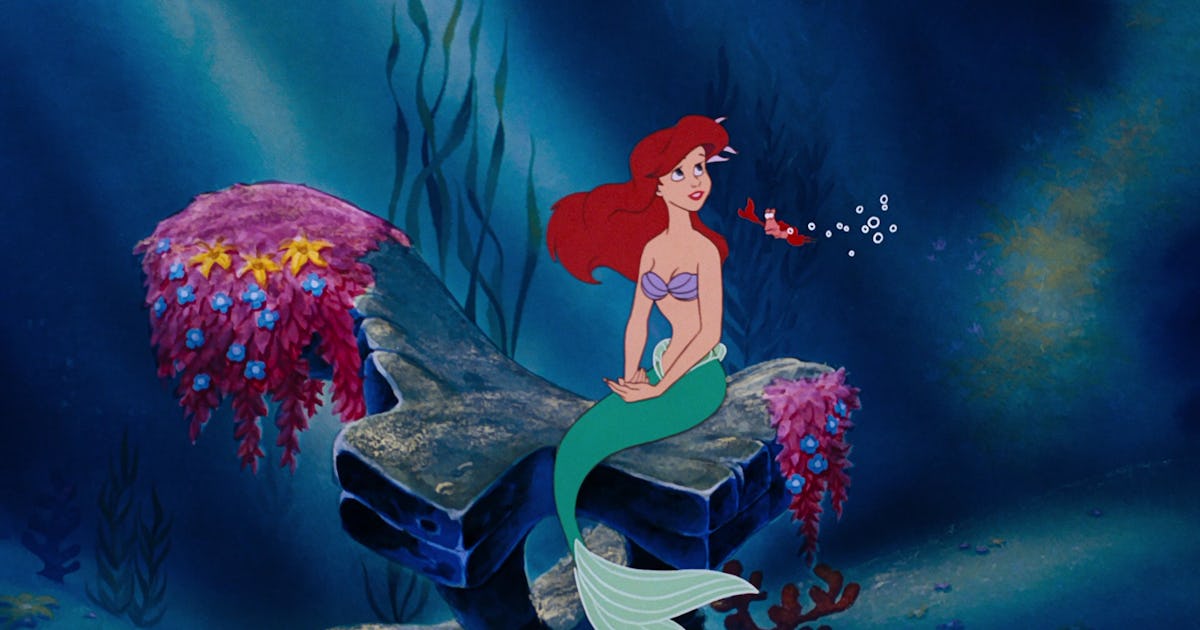
Ariel’s belief transcends the cynicism of the society around her. The world tells her one thing, but her heart knows better because she sees beyond her temporal senses.
This is also why Ariel giving up her life as a mermaid and going against the wishes of her father isn’t an innately bad thing. I get where the concern comes from. For a parent trying to raise their child in the faith, Ariel’s rebellion can look a lot like wandering from the path of truth. Just so, I don’t think that’s the only reading, or even the best one. For someone not raised in the faith, finding God might also look like turning your back on your old life, the sacrifice of all things for the kingdom of God.
Moreover, this act of faith on the part of Ariel has overarching ripples. By choosing to believe in light, Ariel not only finds happiness for herself, but she also heals the gap between two divided worlds.
As for Ariel’s deal with Ursula, I think there’s something to be said for the reality that even the best of us are susceptible to the manipulations of the devil. Maybe Ariel doesn’t deserve to live eternity as a sea worm any more than the rest of us. (There is a somewhat gendered element to this discussion as well. You don’t see parents up in arms about Simba being a bad example for kids even though he abandons his kingdom to starvation for years on end.)
Again, Ariel’s naivete, which leaves her vulnerable, is tightly threaded with her innocence, which allows her to see things that no one else does. While the two traits are a package deal, Ariel still comes out on top because her goodness is more powerful than Ursula’s evil, as manifested when the man she saved from drowning returns the favor by rescuing her in her hour of need. (I made a similar observation in my piece on Snow White and the Seven Dwarfs.)
In short … you’re not a bad Christian if Ariel is your favorite Disney princess.
And let’s please stop sexualizing animated characters.






